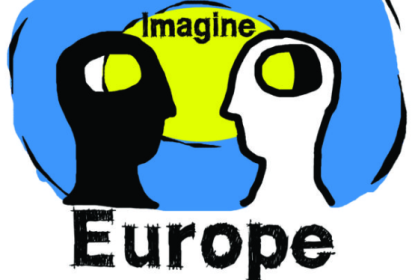Projekt IMAGINE EUROPE stawia sobie za cel obniżenie poziomu eurosceptyzmu oraz eurofobii w państwach organizacji partnerskich poprzez organizację debat, dyskusji, kampanii informacyjnych oraz innych wydarzeń na tematy, które pozwolą przypomnieć obywatelom UE historię oraz wspólne wartości Unii Europejskiej.
IMAGINE EUROPE zakłada zdefiniowanie stanowisk oraz konkretnych rozwiązań, aby zahamować wzrost wpływu eurosceptyzmu oraz eurofobii w państwach członkowskich UE. Dialog interkulturalny będzie stanowił główne narzędzie projektu i przyczyni się do wzajemnego zrozumienia pośród obywateli UE.
Uczestnicy projektu będą mieć szansę, by aktywnie uczestniczyć w dyskusjach skupiających się na znalezieniu zróżnicowanych metod i narzędzi do zahamowania wzrostu eurofobii oraz eurosceptyzmu, które przytłaczają Europę. Projekt zakłada wykorzystanie następujących narzędzi: badania i analizy (kwestionariusze, wywiady), aby poznać przyczyny eurosceptyzu i eurofobii; narodowe kampanie informacyjne oraz debaty, międzynarodowe seminaria, aby ustalić ramy i zrozumieć przyczyny tych negatywnych zjawisk. Poprzez dialog międzykulturowy oraz transnarodową współpracę, projekt przyczyni się do zmniejszenia poziomu eurosceptyzmu na poziomie narodowym oraz międzynarodowym, a także wskazania możliwości oraz korzyści wynikających z członkostwa w Unii Europejskiej.
Projekt Imagine Europe otrzymuje wsparcie Komisji Europejskiej w ramach programu Erasmus +.
Partnerzy: International Initiatives for Cooperation – IIC (Bułgaria), M2C Institut fur angewandte Medienforschung GmbH (Niemcy), United Societies of Balkans (Grecja), YOUNET (Włochy), Integration För Alla (Szwecja), Wellfield Education (Wielka Brytania).
Daty realizacji projektu: wrzesień 2016 – styczeń 2018
[/vc_column_text][/vc_column][/vc_row][:en][vc_row][vc_column][vc_column_text]The aim of IMAGINE EUROPE project is to decrease the wave of upcoming Eurosceptism and Europhobia in the partner countries by organizing civic debates, discussions, informational campaigns and events on topics which remind us and take us back to the history and the shared values of the EU.
The project seeks to identify approaches and concrete solutions to decrease the further growth and influence of the Euroscepticism and Europhobia amongst the EU Member States. We will use the intercultural dialogue as a main tool for mutual understanding amongst the EU citizens to provoke their active participation on the topics of Europhobia and Euroscepticism.
People from all partner countries will have the opportunity to participate actively in the discussions finding diverse methods and tools to overcome the growing Europhobia and Euroscepticism which overwhelms Europe. To achieve the stated aims in the project the plan is to adopt a diverse methodology: research and comparative analysis (questionnaires, focus groups, detailed interviews) to find out the causes for Euroscepticism and Europhobia; national informational campaigns and debates, international seminars and tribune to set the frames and the reasons for the Euroscepticism. Through the intercultural dialogue and transnational cooperation we hope to change the level of Euroscepticism on national and international level and to present the great opportunities and benefits of EU to its citizens.
Partners: International Initiatives for Cooperation – IIC (Bulgaria), M2C Institut fur angewandte Medienforschung GmbH (Germany), United Societies of Balkans (Greece), YOUNET (Italy), Integration För Alla (Sweden), Wellfield Education (UK).
Project Imagine Europe is co-funded by European Commission within Erasmus+ Programme.
Dates of the project: September 2016 – January 2018


